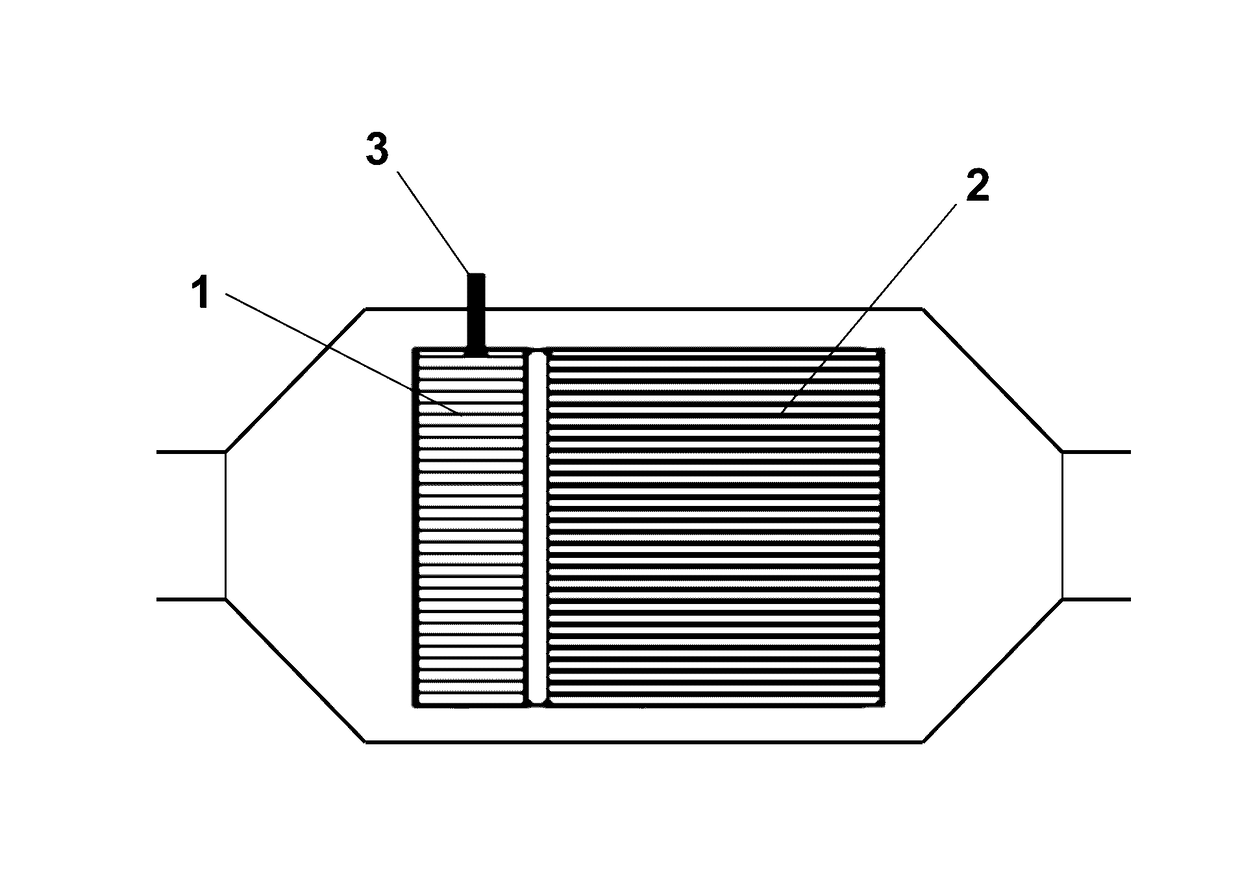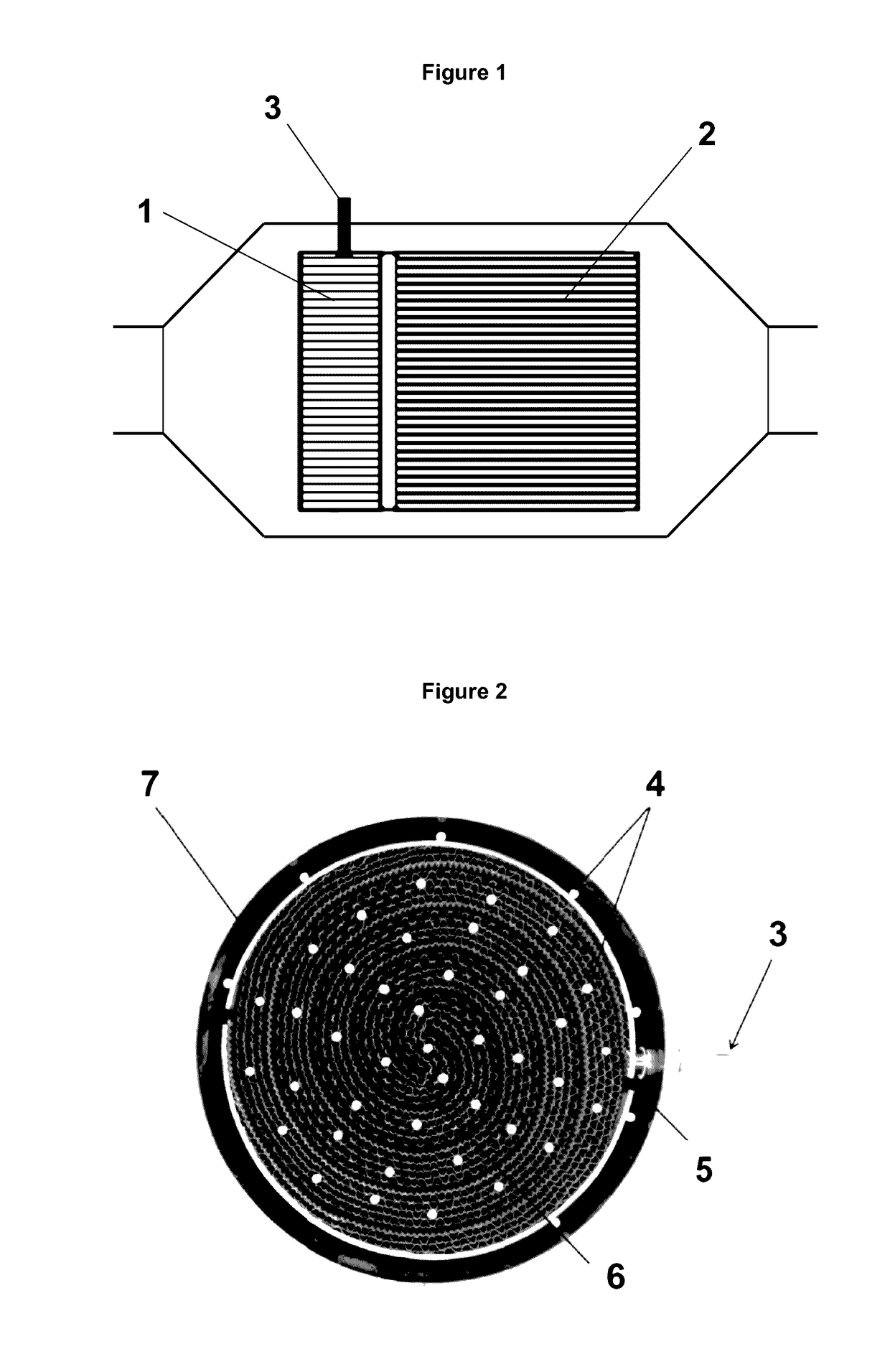Electrically heated catalyst for a compression ignition engine
a technology of ignition engine and catalyst, which is applied in the direction of metal/metal-oxide/metal-hydroxide catalyst, physical/chemical process catalyst, and catalyst, which takes a significant amount of time to heat up to their effective operating temperature, and platinum group metals such as platinum and palladium are expensive constituents of emissions control devices, so as to achieve good oxidative activity
- Summary
- Abstract
- Description
- Claims
- Application Information
AI Technical Summary
Benefits of technology
Problems solved by technology
Method used
Image
Examples
example 1
Coating the First, Electrically Heatable Substrate (Coating 1)
[0152]Alumina powder was slurried in water and milled to a d90<20 micron. Soluble salts of platinum and palladium were added and the slurry stirred to homogenise. The resulting washcoat was applied using established coating techniques to the open face of the first substrate with 160 cpsi. The coating was subsequently dried.
Coating the Second Substrate (Coating 2)
[0153]A second washcoat was prepared using the same method that was used for Coating 1 except that the slurry had a higher content of alumina. This coating was applied using established coating techniques to the open face of the second substrate with 600 cpsi. The coating was subsequently dried and the whole part was calcined at 500° C.
[0154]The final coating loading on the first substrate was 1.3 g in−3. The final coating loading on the second substrate was 1.8 g in−3.
example 2
Coating the First, Electrically Heatable Substrate (Coating 3)
[0155]A silica-alumina powder was slurried in water and milled to a d90<20 micron. Soluble salts of platinum and palladium were added and the slurry stirred to homogenise. The resulting washcoat was applied using established coating techniques to the open face of the first substrate with 160 cpsi. The coating was subsequently dried.
Coating the Second Substrate (Coating 4)
[0156]A second washcoat was prepared using the same method that was used for Coating 3 except that the slurry had a higher content of alumina. This coating was applied using established coating techniques to the open face of the second substrate with 600 cpsi. The coating was subsequently dried and the whole part calcined at 500° C.
[0157]The final coating loading on the first substrate was 2.0 g in−3. The final coating loading on the second substrate was 2.8 g in−3.
PUM
| Property | Measurement | Unit |
|---|---|---|
| length | aaaaa | aaaaa |
| specific heat capacity | aaaaa | aaaaa |
| length | aaaaa | aaaaa |
Abstract
Description
Claims
Application Information
 Login to View More
Login to View More - R&D
- Intellectual Property
- Life Sciences
- Materials
- Tech Scout
- Unparalleled Data Quality
- Higher Quality Content
- 60% Fewer Hallucinations
Browse by: Latest US Patents, China's latest patents, Technical Efficacy Thesaurus, Application Domain, Technology Topic, Popular Technical Reports.
© 2025 PatSnap. All rights reserved.Legal|Privacy policy|Modern Slavery Act Transparency Statement|Sitemap|About US| Contact US: help@patsnap.com


